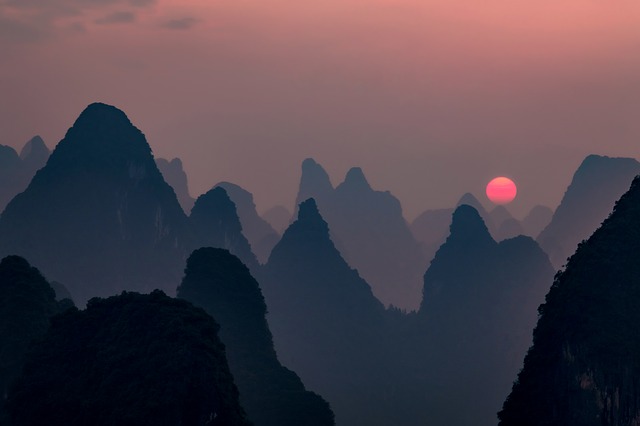LA production companies are struggling to raise capital within their own ecosystem, and have been for some time now. The issue isn’t a lack of financially viable projects; there is plenty of talent still emerging from LA production schools and the infrastructure for making films has never been better.
The main issue is the unpredictability of the market.
The potential ROI of a major Hollywood movie has never been higher—36 of the 50 highest-grossing movies of all time were made in the last ten years, and most of them were within the last five. Unfortunately, the costs of producing such movies have never been higher either, making it an incredibly expensive gamble with less than attractive odds.
The answer to this investment conundrum?
China.
LA Movie Production Hitches Wagon to Chinese Funding
On paper, the model is fairly simple—Chinese investors help fund Hollywood productions, and in exchange they get product placements and a say in how the storyline and casting choices go (in order to make it more appealing to the Chinese box office). This practice has actually been going on for a couple of years now, but it’s only just becoming more blatant.
Easily the best example of this is the latest installment in the Transformers franchise. Western audiences were bemused to see characters using Chinese ATM machines and drinking the Chinese version of Red Bull, Jian Nanchun liquor, and Yili Milk (the latter of which appears during the middle of a battle scene.) That’s just to name a few.
Pretty strange product placements, but doubly so when you consider the setting of the storyline… Texas.
Bafflement of viewers (and critical reception) aside, it was a win for Michael Bay who had to raise a gargantuan $210 million to shoot the movie. But why is it that Chinese investors are happy to make the gambles that their US counterparts fear to?
The situation becomes a lot clearer when we look at how the box office is doing in the East compared to the tempestuous waters on this side of the Pacific.
Enviable, Long-Term Growth
Where many other global box offices seem stuck in the doldrums, China is faring exceedingly well—last year, North America saw only 1% growth.
… China? 27%.
This equates to $3.6bn in box office receipts, roughly 10% of total global sales (for comparison, US and Canada took 30.4% of total global sales, or $10.9 billion.) And China is only going to close the gap according to fairly sound estimates—next year China’s box office takings will almost double to a sizable $5.9 billion.
The main reason for this is twofold; for one, more and more Chinese nationals are getting to enjoy going to movie theatres for the very first time. It was, and still is, a luxury for the middle class, but that middle class is growing—over the next decade, 75% of Chinese households will be deemed “middle-class” (compared to a mere 4% in 2000) and with it comes a middle-class disposable income.
Where American audiences are suffering from movie-going ennui, our friends in the East are embracing a fanatical, new-found love of going to the cinema…. And when they do, they really like to see Western imports.
The second reason for the box office upswing is that foreign imports such as the latest X-Men movie and the aforementioned Transformers 4 are performing astoundingly. Part of it is simply a cultural love affair with the Hollywood aesthetic and Western actors (George Clooney famously stated that he gets paid so much doing overseas adverts, he could do one a year and retire happy).
It’s for these reasons that China are so heavily invested for the long haul, and why Hollywood are more than happy to shake hands in return.
How Much Chinese Money is Invested in the U.S.?
All in all, around $43 billion in Chinese foreign investment has flooded American markets since 2000, and around $2.7 billion of that has been in Hollywood entertainment. This is not an insignificant number by any stretch, and it’s only set to grow. We’re seeing an increasing frequency of stories about Chinese investors targeting the US, and perhaps the biggest one to date hit the headlines last week; Jack Ma, the multi-billionaire CEO behind Alibaba (Asia’s biggest trading platform) has reportedly been courting some of the biggest players in LA production including Lion’s Gate, Disney, Paramount and Time Warner.
As a side, part of the reason investing overseas is attractive, particularly in US movie production, is that it’s deemed far safer to get money out of the country. According to Michael Godin, a real estate tycoon who pairs Chinese investors with brokers in the US: “There is much more trust (felt for) the United States and the U.S. government that those assets will be protected by the government, compared to the assets here in China, which could be taken away tomorrow.”
But let’s get back to the world of movies, and close with a concluding note on:
The Future of Chinese/LA Production Collaborations
One thing is for certain: the money tap is not going to stop flowing from the East. But what still needs to be figured out is how LA production companies are going to best use the investment.
The Chinese product placement seen in Transformers 4 probably isn’t the way forward, given that it did very little for sales of said products according to this consumer survey (article in Chinese) and only served to confuse home audiences.
It’ll take some time before Hollywood finds a viable model and strikes the right balance…
